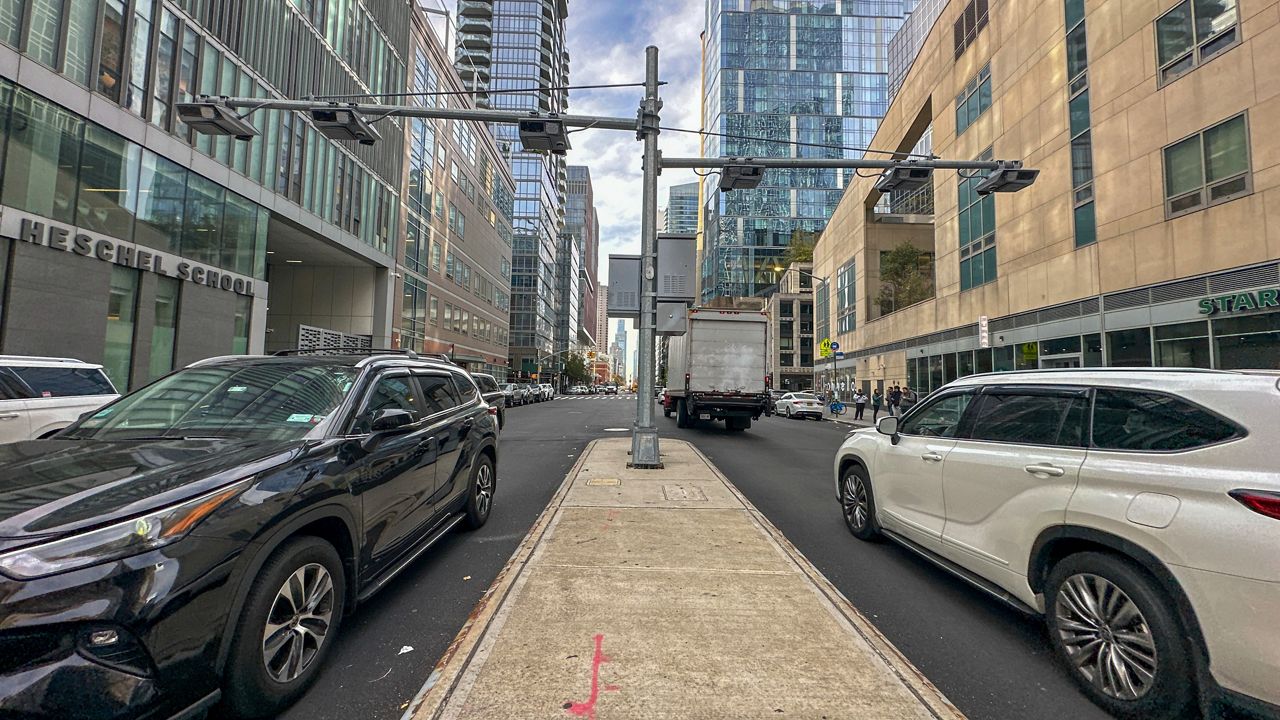The Trump administration said Tuesday that it’s not backing off its latest deadline for New York to end its $9 congestion toll on drivers entering the most traffic-snarled parts of Manhattan, despite a recent court filing that indicated the charge would remain at least through the summer.
Lawyers for the two sides recently reached an agreement that appeared to slow things down. They proposed a briefing schedule that allows for court filings through the end of July and possibly into October, while government lawyers indicated they wouldn't seek an injunction to stop the tolls while the lawsuit proceeds, according to a joint letter dated Friday and signed by an MTA lawyer to the judge in the case.
But the U.S. Department of Transportation said Tuesday that it wasn’t backing off from its immediate demands to end the tolling. In a post on the social platform X, the agency said the April 20 deadline stands.
“This is a complete lie by the elitist New York liberal media, whose rich buddies love the idea of pricing poor people out of the city,” the post said. “The truth is simple agreements on judicial timelines have no bearing on the underlying merits of our case or our position.”
It added, “Make no mistake — the Trump Administration and USDOT will not hesitate to use every tool at our disposal in response to non-compliance later this month.”
Duffy previously suggested that federal funding for New York could be at risk if it didn’t end the toll.
The U.S. attorney’s office in Manhattan, which represents Duffy in the lawsuit, declined to comment.
The MTA also declined to comment, saying Friday’s letter speaks for itself.
The Trump administration has pushed to end the tolling program, with the U.S. Department of Transportation previously ordering the MTA to stop collecting tolls by March 21. But just before the deadline, Transportation Secretary Sean Duffy said the agency would allow a 30-day extension “as discussions continue,” pushing the date to April 20.
The toll, which charges drivers with E-ZPass $9 to enter Manhattan below 60th Street, has been in place since January and is at the center of a legal and political standoff between the MTA and the federal government.
During President Donald Trump's campaign last May, he vowed on social media to "terminate" the program during his first week in office. He previously characterized it as a massive, regressive tax.
Duffy has agreed, calling the toll "a slap in the face to working class Americans and small business owners.”
Meanwhile, early data suggests the toll is achieving its intended goal: reducing traffic and shortening commute times.
A March report by the Regional Plan Association found average trip times in January dropped 17% through the Lincoln Tunnel and 48% through the Holland Tunnel. For commuters from Queens and Long Island, the average commute time has decreased by about 13 minutes, while Brooklyn and Staten Island drivers are saving roughly seven minutes.
In a statement Tuesday, a spokesperson for Gov. Kathy Hochul reiterated the data, saying, “Since congestion pricing took effect three months ago, traffic is down and business is up – and that’s the kind of progress we’re going to keep delivering for New Yorkers.”


